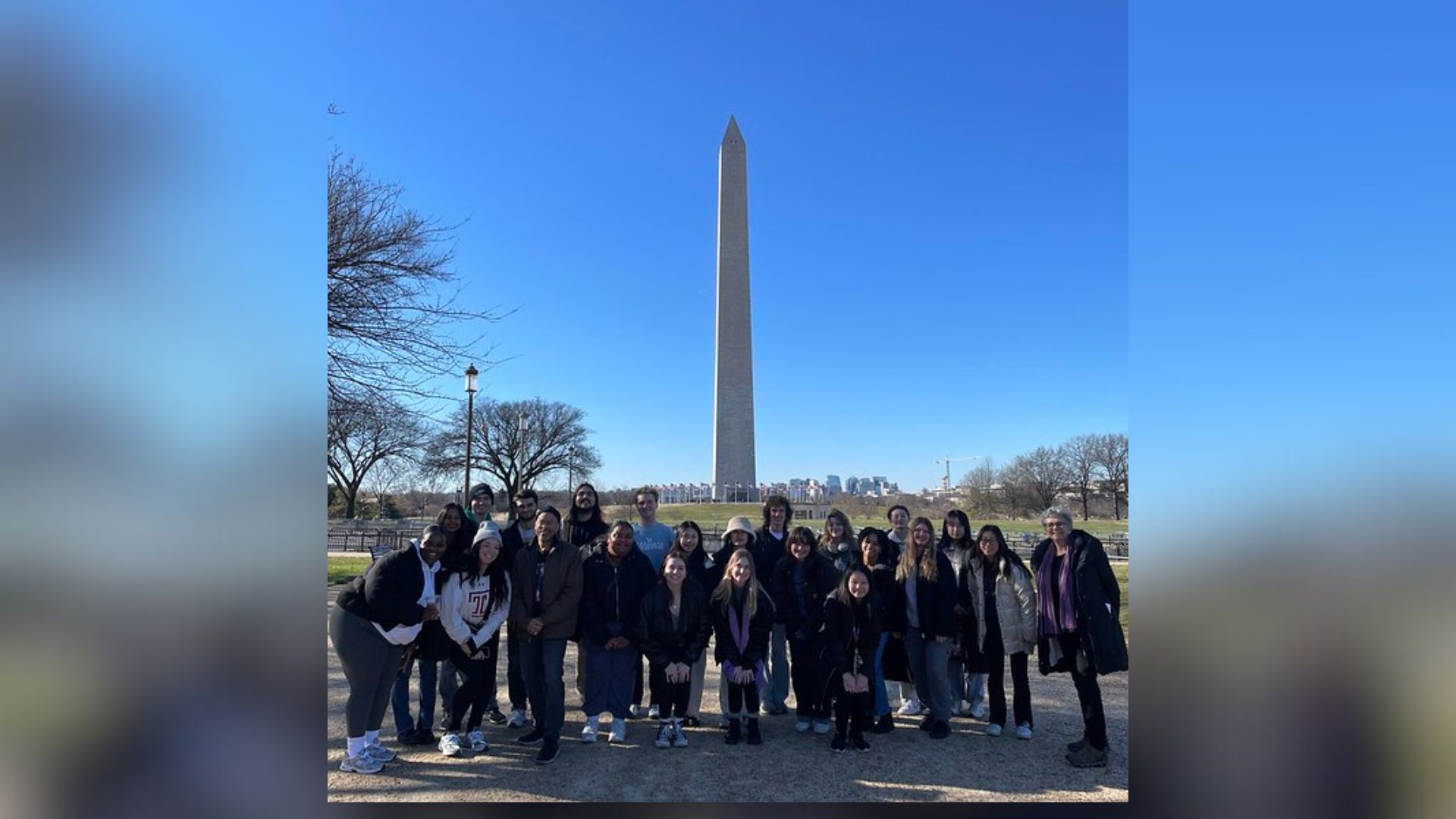In January, a group of students learned how three of the most impactful caste systems in the world collide through the Klein Global Opportunities program Rocking the World: Disrupting Stereotypical Notions of Race, Class, and Religion. The three-credit course is offered during the winter semester and is completed in six days — three days in the classroom and three days in Washington, D.C. As part of the class, students were required to read the book Caste: The Origins of our Discontent by Isabel Wilkerson, which explores the connections between Nazi Germany and the caste systems in India and the United States. The course was developed and led by professors David Brown, Dana Saewitz, and Meghnaa Tallapragada.
Before the class began on January 8, 2024, students started the assigned reading, which introduced them to the topics they would explore both in the classroom and in Washington.
Throughout the book, Wilkerson describes her experiences navigating American society and a career in media as a Black woman.
Brandon Dreibelbis, a freshman media studies and production student, describes reading Wilkerson’s book as an eye-opening experience, which encouraged him to evaluate his views on the use of racial and ethnic stereotypes.
“It kind of opened my eyes to myself and others,” Dreibelbis said. “Just recognizing when people are labeled based off of characteristics, such as race, colorism, or even religious standpoints and kind of just acknowledging when you are making stereotypes off of someone in the first impression within myself and also noticing it when other people do it.”
For first-year students like Dreibelbis, working closely with professors could be an opportunity to introduce themselves to faculty they might have yet to interact with.
“As a freshman going into my second semester, I didn’t know any of the professors,” Dreibelbis said. “So, also, it’s just great to meet people ahead of time that I might be working with in the future.”
During the three days in the classroom, the students focused on dissecting Wilkerson’s book and using it as a guide as they began thinking about their educational goals for the program.
“It changed my view of the world because I didn’t realize that what was in America was considered a caste system, so I think that was a big revelation for me and a lot of the students within the class,” said Ava Arteaga, senior communication and social influence student. “In the book, it really honed down on the pillars of caste and how each of the eight pillars sustained a caste system.”
On day four, students began their exciting adventure in Washington, DC. They visited museums like the National Museum of African American History and Culture and the United States Holocaust Memorial Museum. While on-site, the students were granted free time, which many used to visit monuments, landmarks and even restaurants.
“I think one of my favorite activities…was the National Museum of African American History and Culture because it had so many layers,” Arteaga said. “They had a lot of contemporary art and modern exhibits, it was really, really fun.”
Besides the learning experience, students could also exercise their different media skills while working on their final project. In previous years, various mediums were used for the projects, including writing, photography, videography and knitting.
Arteaga’s project explored Dalit women in India, Black women in America, Jewish women and some of the struggles they continue to face in the contemporary world.
Learning about these different caste systems and simultaneously working on a project allows students to use their research skills in practice. Arteaga, who later presented her project at the 2024 Symposium for Undergraduate Research and Creativity, suggested that future students have an idea of what they want their project to focus on and share their final work if allowed.
“If they’re also given the opportunity to present their research, do it,” she said. “If they know that this might be a possibility, go into the project assuming that this will be presented.”
Dreibelbis’ work consisted of a compilation of different movie and TV clips from different eras that showcase racial or ethnic stereotypes while explaining the implications said stereotypes can have on society.
“The whole purpose of my project was to show that there’s a lot of media that we digest that subconsciously plant these ideas of stereotypes in our heads and that we should be aware of those,” Dreibelbis said.
Programs like Rocking the World allow students to expand their social horizons as they interact with other students interested in learning about the issues that cause societal clashes.
“Everyone in the class really cares about the topic,” Dreibelbis said. They’re going out of their way during winter break to be there and to do it, so because of that, I feel like everyone is very intrigued and engaged in the course in a way that you won’t see anywhere else.”

